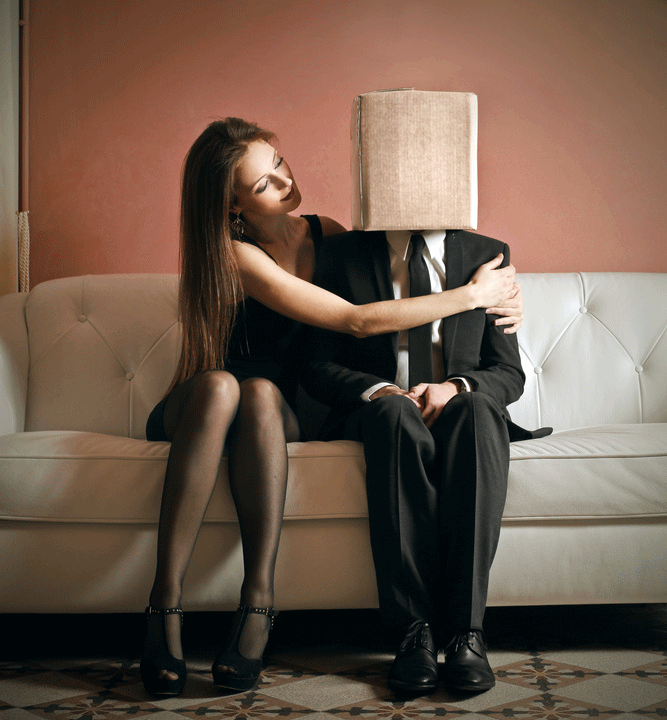On June 30th the Oakland Police Department announced the launch of a website that displays the names and photos of “pimps and purchasers,” individuals arrested for soliciting prostitutes or benefiting from prostitution. This is not the first time that a city decided to shame customers as part of its fight against illegal prostitution, and it won’t be the last.
There are numerous examples of an increasingly popular trend to attack the purchasers of sex. As mentioned in a previous post, Canada’s latest prostitution Bill has similarities to the “Nordic model” of prostitution legislation, outlawing the purchase of sex but not the sale. Additionally, websites like exposingjohns.com have been popping up, schemes that gather and post the names, phone numbers, and in many cases photos of men who respond to fabricated escort advertisements created by the website’s operators. (Want your name and photo removed? Pay them $500.00.)
Shaming the people who attempt to purchase sex is a fear tactic, usually employed with the intention to reduce sex trafficking by removing the demand. It is a controversial approach that has sparked a great deal of criticism and debate, primarily because soliciting a prostitute is a relatively minor crime in most parts of the USA. The humiliation and reputation damage that may result from aggressive public shaming, however, could lead to dire personal and professional consequences for the solicitor.
Is Customer Shaming Becoming a Best Practice?
There is material that supports the shaming of johns as an effective weapon against illegal prostitution. A study funded by the National Institute of Justice found that 200 police departments nationwide believe that johns fear publicity about prostitution charges more than fines or even jail. The study cites numerous instances where shaming proved an effective deterrent. In Raleigh, North Carolina, for example, a comprehensive approach emphasizing arresting and shaming johns was associated with a 38% reduction in calls for police service.
If this trend continues to yield results, john shaming just might become a standard practice in the ongoing fight against sex trafficking, which is bad news for any person seeking the services of an illegal prostitute.
Legal Prostitution: Shame vs. Respect
Because “prostitution” is an umbrella term that not only encompasses a sex-for-money transaction between consenting adults, but also child trafficking, sex slavery, and other despicable practices, it’s not difficult to understand why johns are so often stereotyped as predators or lowlifes. The shady world of street walkers, erotic massage parlors, and even high-end escort agencies serve to propagate this stereotype. These unprincipled industries incorporate their customers into the stigmatized realm of criminalized prostitution, where everyone involved operates in constant fear of law enforcement. Even a well-intentioned customer, who is simply looking to pay for an enjoyable, consensual sexual encounter, is forced to play the role of the paranoid prevaricating punter.
In Nevada, where prostitution has been legalized, an entirely different dynamic exists. Because Nevada’s licensed brothels are legitimate businesses operating within the law rather that against it, customers have no need to fear legal repercussions or humiliating publicity.
There are three key items that need to be understood with regard to the legal brothel customer experience:
Legitimacy
Legal brothels are actual licensed businesses that openly sell sex. They don’t illegally sell sex under the guise of “companionship” like an escort agency does – they lawfully sell sex. These establishments are held to the highest standards of health and safety and only employ adult women who willingly practice their trade. Customers entering these establishments, and partaking of the services offered therein, can be confident that they are not unknowingly contributing to illegal sex trafficking.
Trust
Legal brothels have been operating in Nevada for nearly half a century. In that time, these houses have earned an excellent reputation for their discreetness. While brothels openly provide sex services, bordello employees are acutely aware that brothel customers prefer to keep their private lives private. Unlike illegal prostitution, no customer has ever, or will ever, be “outed” or shamed for visiting a legal brothel.
Respect
Customers of legal brothels have the peace of mind that comes with knowing that they are not perpetuating criminal activity and that their most intimate secrets will remain safe and sound, but there is another aspect to the customer experience that is rarely mentioned but ever-present: respect. Legal courtesans understand that prostitution is an inescapable societal reality, and that the clients of prostitutes are, overwhelmingly, decent people. At legal brothels, these customers are treated with the respect and courtesy they deserve.
While shaming and other fear tactics continue to be implemented by law enforcement in the fight against sex trafficking, it’s worth mentioning that there is another side to prostitution, where good-natured adults seek sexual fulfillment from willing service providers. Not all johns are predators and not all prostitutes are victims. Perhaps a key tool in the fight against sex crime is not only shame, but also respect – and a willingness to enter into a dialogue about the benefits of legalizing sex work across the United States.



This is a good article Jeremy, I especially liked “not all “johns” are predators and not all prostitutes are victims .” It’s true.. Some men just want the company of a woman where they can let their inhibitions go and explore a side of their sexuality that has been pushed aside.. Some couples come in to put that spark back into their relationship.. Some men have never been with a woman before and are too nervous or feel ashamed for having waited so long to lose their virginity.. There are so many different reasons as to why someone seeks the companionship of a prostitute. I don’t necessarily agree with shaming everyone or that you can pay $500 to get it removed (sounds like a pimp move to me..) but I won’t get into that much further.. I’ll be nice 🙂 But I will say that I definitely hold myself to a high enough standard to be very discreet about any experiences I’ve had, and respectful to everyone that has ever been in my bedroom!
Why is america so hung up about sex? I agree sex should be between two concenting adults and the real criminals are those ( men & women ) that traffic in the trade. Its a proven fact that humans NEED the touch of other humans and when the go long enough without it, health is affected. When a person is going through a rough period in thier lives and needs to rest in the arms of a caring, loving person, how can that be a crime?
The women’s groups in America have so restricted the ability for a man to seek comfort in the arms of a woman that it has lead to this huge sex trade that has endangered millions of women. This profession should be legal in all states just like pot is being legalized all over.
I am very interested. In your offerings. What I would like to know, in ball park figures, what I could expect to pay for a weekend in one of your cottages? In looking at the various sites yours was the most attractive both from a place to visit and your ladies.
I have a desire to be in the company of someone who can take to places I have never been.
Thanks.
I have been arrested twice. Once in 1999 and once in 2000. It was before
chicago police department John website was functional. They try to extort as much money as possible out of you.615 dollars for impounded car first time court was free charges dismissed SecoND time
Supervision my attorney said she doesn’t work for free I got her 100 dollars from atm. Then I had to pay 200 dol. Each time
to expunge record.
That was almost 16 years ago.
Now it is in thousands
Dear Jim, we can not discuss price till you get to the ranch due to strict solicitation laws. Try emailing a lady you are interested in. Good luck!
Soliciting an illegal prostitute can definitely be hazardous to a customers reputation. You never know when you might be part of a police sex sting. Examples:
Chicago Police Department Shames Johns and Publishes John Names Online:
http://www.chicagopolice.org/ps/list.aspx
Approach a Prostitute in a Sting and You May get Shamed by the Police. San Bernardino County, CA Publishes Online Stop the John Project: http://bit.ly/1smpXZF
I’ve been told by men that sex is not a desire… its a hunger. and how many times have you heard that a wife stops sleeping with her husband after a time. if you really think about it, because a man has this hunger that cant be denied, he has only a few choices. either rape his wife, end his marriage and break up a family, or look outside the marriage for nsa with no emotional ties. which of those choices would be the least shameful?
And recently the Orange County, CA DA’s office is making news for utilizing the shaming johns tactic -> http://www.latimes.com/local/orangecounty/la-me-john-shaming-20141120-story.html#page=1